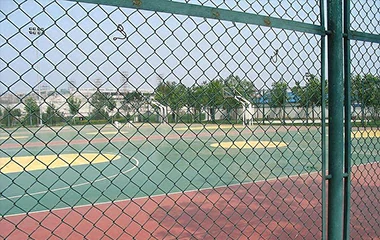 TEL:
+86-13102802206
TEL:
+86-13102802206
 Email:
fencenetting@china.com
Email:
fencenetting@china.com
 Language
Language
 TEL:
+86-13102802206
TEL:
+86-13102802206
 Email:
fencenetting@china.com
Email:
fencenetting@china.com
 Language
Language


Understanding Window Mesh Replacement A Comprehensive Guide
Window mesh screens are an essential component of our homes, providing ventilation while keeping bugs and debris at bay. Over time, however, these screens may become damaged or worn out, necessitating a window mesh replacement. This article explores the reasons for replacing window screens, the different types available, and the steps to achieve a successful replacement.
The Importance of Window Mesh Screens
Window mesh screens serve multiple purposes. They allow fresh air to circulate into your home while preventing insects and pests from entering. They also help in maintaining the cleanliness of your living space by keeping out leaves, dirt, and other debris. In addition, screens can provide a barrier against harmful UV rays, contributing to your home's energy efficiency. However, when a screen becomes torn or damaged, it can compromise these benefits, making regular maintenance and replacement necessary.
Common Reasons for Replacement
Several factors can contribute to the need for window mesh replacement. One of the most common reasons is wear and tear from exposure to the elements. Over time, UV rays from the sun can degrade the mesh, making it brittle and prone to tearing. Additionally, strong winds, hail, and heavy rains can physically damage screens. Pests, such as rodents or insects, might also gnaw or puncture the mesh.
Sometimes, homeowners may choose to replace their window screens for aesthetic reasons. An upgraded screen can enhance the overall appearance of a home, or a specialized mesh type may provide better visibility or protection against certain pests.
Types of Window Mesh Screens
There are various types of window mesh screens available, allowing homeowners to choose what best suits their needs. The most commonly used materials include fiberglass, aluminum, and pet screens.
1. Fiberglass Screens These screens are lightweight and resistant to corrosion. They are easy to install and provide good visibility, making them a popular choice for many homeowners. However, they may not be as durable as other materials and can be prone to tears.
2. Aluminum Screens Aluminum screens are highly durable and offer excellent protection against damage. They can withstand harsh weather conditions, though they may be more prone to corrosion in coastal areas. Aluminum is often chosen for its long lifespan and sturdiness.

3. Pet Screens For pet owners, specialized pet screens are designed to resist tearing and scratching from pets. They are made from stronger materials compared to standard screens, providing an excellent solution for households with dogs or cats.
4. Solar Screens These screens are designed to block UV rays and reduce solar heat gain. They are particularly beneficial for homeowners looking to improve energy efficiency.
Steps for a Successful Window Mesh Replacement
Replacing a window mesh screen can be a straightforward DIY project. Follow these steps for a successful replacement
1. Remove the Damaged Screen Carefully detach the screen from the window frame. Depending on the type of screen, this may involve removing screws or simply sliding the screen out of place.
2. Measure and Cut the New Screen Measure the frame dimensions to ensure a proper fit for your new screen. Use a high-quality mesh material, cutting it slightly larger than the frame to allow for adjustments.
3. Attach the New Screen Lay the new mesh over the frame and secure it in place using screen spline (a flexible material used to hold the mesh in place). Trim any excess mesh around the edges.
4. Reinstall the Screen Frame Once the new screen is secured, reinstall it in the window frame, ensuring it fits snugly.
5. Test for Functionality Finally, check that your new screen is appropriately fitted and functioning well. Ensure that it allows airflow while blocking unwanted pests.
Conclusion
Window mesh replacement is a necessary task for maintaining a comfortable and pest-free living environment. Whether due to wear and tear or aesthetic preferences, understanding the types of screens available and the replacement process can empower homeowners to take on this DIY project with confidence. With the right tools and a bit of patience, replacing your window screens can lead to a fresh, clean, and efficient home.